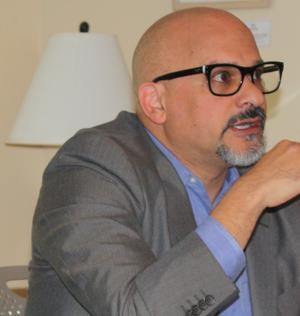Gilberto Rosas was named Associate in the Center for Advanced Studies (CAS) for the academic year 2019-2020. As a CAS awardee, he will complete Witness: Testimony and the Ends of Refuge, a book that addresses the competing ends of refuge as it plays out in the complexities of immigration and asylum proceedings and the often-divisive discourses that surround them. Witness will be among the first books to capture an emergent current of migration from Mexico: those who are fleeing the drug war and resisting deportation by struggling for recognition as asylees.
The book takes its vantage point from his experience providing expert testimony on behalf of people in asylum and related legal proceedings. Witness captures and analyzes lived experiences of individuals in immigration proceedings and their links to larger structural forces, as they resist detention and banishment.
Witness takes the practice of expert testimony and related witnessing as key sites of knowledge production in the human sciences, including the accompanying social relations of working with judges, attorneys, and respondents. It captures the political struggles undergirding contemporary asylum practices.
Asylum traffics in immigrant death and persecution. Asylum seekers from Mexico and elsewhere must grapple with the deep suspicion that they are economically motivated immigrants rather than politically persecuted refugees. This entrenched imperial ideology is rapidly being supplanted by another that equates all immigration, regardless of motivation, with criminality. In order to be awarded asylum, people in removal proceedings must demonstrate to an immigration judge a well-founded fear of persecution based on race, religion, membership in a particular social group, or political opinion. To have a well-founded fear means not only that a persecutor might want or intend or try to abuse or oppress the asylum seeker, but also that the government from where they flee is either unable or unwilling to protect the asylum-seeker. The fates of people Rosas has worked with in immigration court and beyond elucidate the intersections among the drug war in Mexico and US immigration policy and the complex burdens of scholarly expertise.
